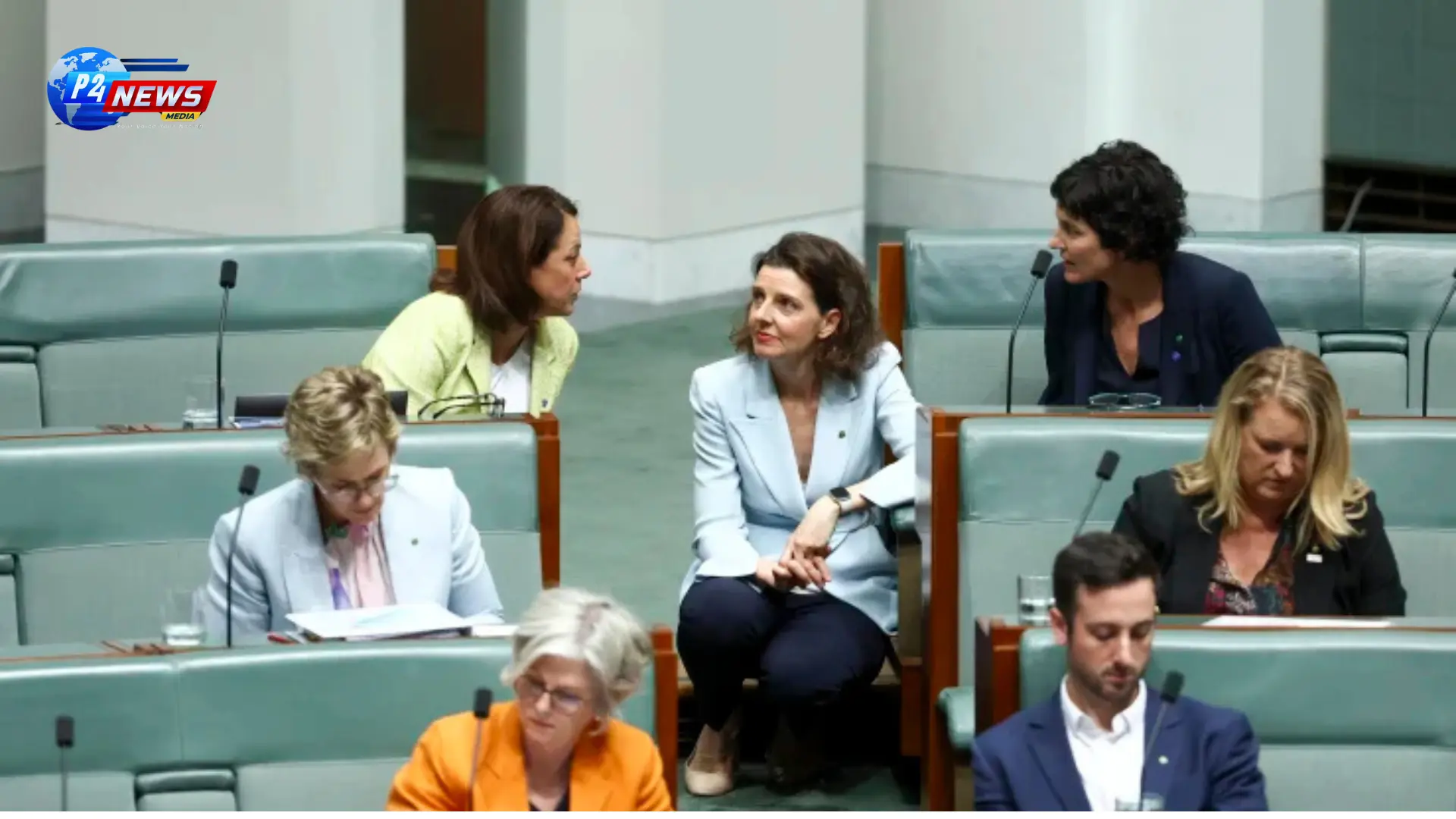Labor and Coalition Join Forces to Rush Through Changes, Sparking Outrage Among Independents and Crossbenchers About Impact on Democracy
Labor and Coalition Join Forces to Rush Through Changes, Sparking Outrage Among Independents and Crossbenchers About Impact on Democracy
In a dramatic political maneuver, Clive Palmer and Simon Holmes a Court are making final efforts to halt significant reforms aimed at political donations in Australia. A collaboration between the Labor Party and Coalition is pushing for swift approval of these changes, which has incited anger among Senate crossbenchers who fear that the new regulations would predominantly benefit the major parties, undermining the efforts of independent candidates in the forthcoming election.
The proposed legislation intends to eliminate the influence of substantial financial contributions in Australian politics. Following off-the-record discussions between Opposition Leader Peter Dutton and Labor strategist Don Farrell, the bill is now poised to advance through the Senate. At the same time, mining tycoon Clive Palmer has rushed to Canberra in an attempt to thwart these modifications.
Simon Holmes a Court, founder of Climate 200, also engaged in last-minute virtual discussions with Farrell, expressing concerns regarding a proposed cap of approximately $800,000 on expenditures within each federal electorate. This cap has raised alarms among various 'teal' independents who fear that it may stifle well-financed campaigns that target established major party incumbents.
The anticipated changes would impose a new ceiling on political donations. Individuals or corporations could contribute up to $20,000 annually to a party in every state and territory, allowing affluent donors to potentially funnel at least $160,000 by distributing their contributions nationwide.
Labor has dismissed criticisms of the legislation, asserting that it is fostering a narrative that portrays 'teal' candidates as overly reliant on wealthy benefactors. The party contends that the regulations will apply uniformly across all political entities and serve to shield voters from undue influence by special interest groups.
This legislative initiative aims to prevent Palmer from replicating the considerable financial campaign he executed in the last election, where he funneled a staggering $117 million into the United Australia Party.
Despite his urgent visit to Canberra to influence Farrell, Palmer faces a setback as efforts to implement the funding restrictions advance. The Mineralogy chief has even hinted at a legal challenge, arguing that the proposed limits infringe upon the freedom of political expression.
While Labor and the Coalition have refrained from officially confirming the deal, sources within the government and the Senate indicate a likely consensus to truncate discussions in the upper house utilizing a tactic known as a guillotine, facilitating the swift passage of the bill even if the Greens and crossbenchers oppose it.
Independent senator David Pocock cautioned against the potential collusion between the major parties regarding donation regulations. He articulated concerns that this arrangement would be rushed through Parliament without thorough examination, debate, or the opportunity for necessary amendments.
The heightened prioritization of increased funding for political candidates, particularly in the final week of Parliament, amidst pressing issues such as safeguarding Australians from scams and implementing a mandatory food and grocery code during a cost-of-living crisis, has drawn ire from independent MPs.
The Centre for Public Integrity, a nonprofit organization advocating for stringent caps on donations coupled with real-time disclosure, has also expressed alarm over hastily pushing through these reforms. Catherine Williams, the executive director, emphasized that significant electoral reforms should not fall prey to the whims of major parties.
Williams remarked, “It is unconscionable that such intricate and substantial reforms could navigate through Parliament without an inquiry. Legislation of much lesser significance routinely undergoes scrutiny: why is this different?”
In the midst of these developments, while the Coalition desired a higher cap on donations, they opted to reach an agreement with Labor, believing it to be more beneficial than an alternative law advocated by Labor and the crossbench, which proposed a lower cap that would discourage business charitable contributions.
In addition to the donation cap, changes entail a new threshold for disclosing donations and a requirement for expeditious transparency regarding contributions compared to existing regulations, which currently mandate that donations made in the year ending June 30 are disclosed the following February 1.
Labor campaigned in the previous election on a commitment to reform the donation laws, proposing that all donations exceeding $1,000 be made public, a stark change from the existing threshold of $15,200. Although this would increase the visibility of donations, the Coalition is apprehensive that heightened transparency might deter smaller enterprises from supporting the Liberals or Nationals.
'
Like
Dislike
Love
Angry
Sad
Funny
Pray
'Trump Tracker: Tulsi Gabbard's Surprising Appointment as US Intelligence Chief
November 14, 20249th Ayurveda Day in Melbourne: A Celebration of Ayurvedic Innovations and Global Health Impact
November 10, 2024🍪 We Value Your Privacy and Experience Hi there! We use cookies to enhance your browsing experience, provide personalized content, and analyze site traffic. By continuing to use our site, you consent to our use of cookies.







Comments 0